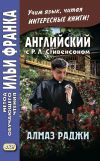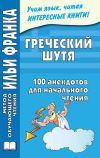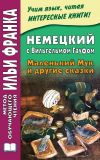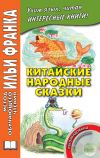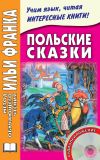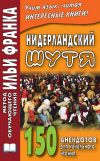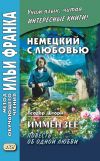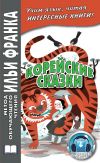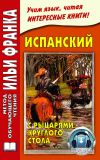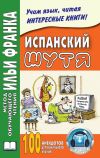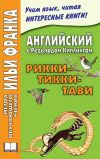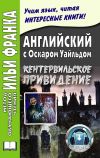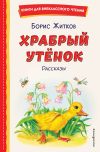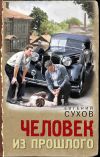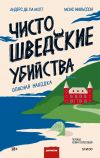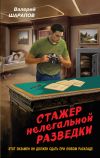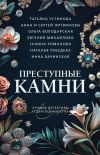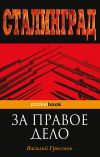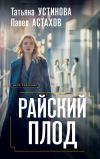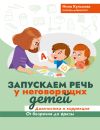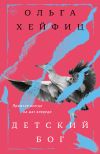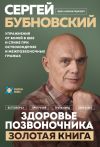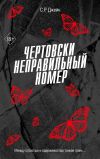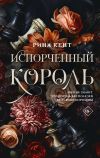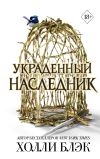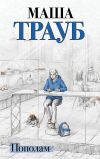Текст книги "Английский детектив. Джон Бакен. Тридцать девять ступеней / John Buchan. The Thirty-Nine Steps"
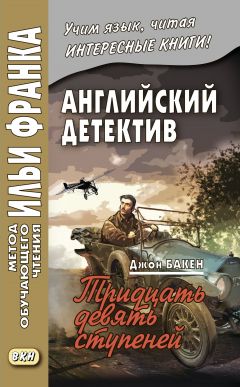
Автор книги: Джон Бакен
Жанр: Иностранные языки, Наука и Образование
Возрастные ограничения: +16
сообщить о неприемлемом содержимом
Текущая страница: 8 (всего у книги 27 страниц) [доступный отрывок для чтения: 9 страниц]
‘Which was?’
He actually blushed. ‘I want to write books,’ he said.
‘And what better chance could you ask?’ I cried. ‘Man, I’ve often thought that an innkeeper would make the best story-teller in the world.’
‘Not now (не сейчас),’ he said eagerly (сказал он нетерпеливо). ‘Maybe in the old days when you had pilgrims and ballad-makers and highwaymen and mail-coaches on the road (может быть, в старые времена, когда по дорогам бродили пилигримы, авторы баллад, разбойники с большой дороги и /ездили/ почтовые кареты; maker – творец, создатель; mail – почта; coach – карета, экипаж). But not now (но не сейчас). Nothing comes here but motor-cars full of fat women (никто не приезжает сюда, кроме толстушек на автомобилях: «кроме автомобилей, наполненных толстыми женщинами»), who stop for lunch (которые останавливаются на ленч), and a fisherman or two in the spring (и одного-двух рыбаков по весне), and the shooting tenants in August (и охотников в августе; shooting – стрельба; охота с ружьем /на дичь/; tenant – владелец /преим. недвижимости/; жилец, житель, обитатель). There is not much material to be got out of that (не много материала добудешь из этого). I want to see life, to travel the world (я хочу увидеть жизнь, путешествовать по миру), and write things like Kipling and Conrad (и писать книги, как Киплинг[18]18
Joseph Rudyard Kipling – Джозеф Редьярд Киплинг (1865–1936), английский писатель и поэт.
[Закрыть] и Конрад[19]19
Joseph Conrad – Джозеф Конрад (1857–1924), английский романист польского происхождения.
[Закрыть]; thing – вещь, предмет; произведение искусства, литературы и т. п.). But the most I’ve done yet is to get some verses printed in CHAMBERS’S JOURNAL (но самое большее, чего я пока достиг, так это то, что мои стихи напечатали в «Чамберз Джорнел»).’ I looked at the inn standing golden in the sunset against the brown hills (я взглянул на гостиницу, которая золотилась в /лучах/ заката на фоне бурых холмов).

 ‘Not now,’ he said eagerly. ‘Maybe in the old days when you had pilgrims and ballad-makers and highwaymen and mail-coaches on the road. But not now. Nothing comes here but motor-cars full of fat women, who stop for lunch, and a fisherman or two in the spring, and the shooting tenants in August. There is not much material to be got out of that. I want to see life, to travel the world, and write things like Kipling and Conrad. But the most I’ve done yet is to get some verses printed in CHAMBERS’S JOURNAL.’ I looked at the inn standing golden in the sunset against the brown hills.
‘Not now,’ he said eagerly. ‘Maybe in the old days when you had pilgrims and ballad-makers and highwaymen and mail-coaches on the road. But not now. Nothing comes here but motor-cars full of fat women, who stop for lunch, and a fisherman or two in the spring, and the shooting tenants in August. There is not much material to be got out of that. I want to see life, to travel the world, and write things like Kipling and Conrad. But the most I’ve done yet is to get some verses printed in CHAMBERS’S JOURNAL.’ I looked at the inn standing golden in the sunset against the brown hills.
‘I’ve knocked a bit about the world (я немного побродил по миру; to knock about – бить, колотить; странствовать, шататься по свету), and I wouldn’t despise such a hermitage (и я не стал бы отказываться от такого уединенного жилища: «не стал бы презирать такое…»). D’you think that adventure is found only in the tropics or among gentry in red shirts (неужели вы думаете, что приключение /можно/ найти только в тропиках или среди людей в красных рубашках)? Maybe you’re rubbing shoulders with it at this moment (может быть, вы встречаете приключение: «третесь плечами с ним» прямо в этот момент).’
‘That’s what Kipling says (именно так говорит Киплинг: «это как раз то, что говорит Киплинг»),’ he said, his eyes brightening (сказал он, и его глаза заблестели; to brighten – светлеть, проясняться), and he quoted some verse about ‘Romance bringing up the 9.15[20]20
Строка из стихотворения Редьярда Киплинга ‘The King’: ‘Confound Romance!.. And all unseen Romance brought up the nine-fifteen (Романтики уж нет, прости!.. Но незаметно в четверть после девяти вела Романтика свой поезд /по пути/; romance – рыцарский роман; романтика; to confound – поражать, ставить в тупик; разрушать /план/; confound it! – к черту! будь оно проклято!)’
[Закрыть] (и он процитировал стихи о том, что романтика вокруг нас: «романтика привела поезд в 9.15»)’.
‘Here’s a true tale for you then (вот вам одна настоящая история в таком случае),’ I cried, ‘and a month from now you can make a novel out of it (и через месяц вы сможете сделать из нее роман).’

 ‘I’ve knocked a bit about the world, and I wouldn’t despise such a hermitage. D’you think that adventure is found only in the tropics or among gentry in red shirts? Maybe you’re rubbing shoulders with it at this moment.’
‘I’ve knocked a bit about the world, and I wouldn’t despise such a hermitage. D’you think that adventure is found only in the tropics or among gentry in red shirts? Maybe you’re rubbing shoulders with it at this moment.’
‘That’s what Kipling says,’ he said, his eyes brightening, and he quoted some verse about ‘Romance bringing up the 9.15’.
‘Here’s a true tale for you then,’ I cried, ‘and a month from now you can make a novel out of it.’
Sitting on the bridge in the soft May gloaming I pitched him a lovely yarn (сидя на мосту в мягких майских сумерках, я рассказал ему хорошенькую басню; lovely – красивый, привлекательный; отличный, восхитительный). It was true in essentials, too, though I altered the minor details (к тому же, она была правдивой в самом главном, хотя я изменил второстепенные подробности). I made out that I was a mining magnate from Kimberley (я притворился, что я горный магнат из Кимберли; to make out – составлять, выписывать; делать вид, притворяться, дать понять), who had had a lot of trouble with I. D. B. and had shown up a gang (у которого было много проблем с незаконной торговлей алмазами[21]21
I. D. B. (Illicit Diamond Buying) – незаконная торговля алмазами (в Южной Африке).
[Закрыть] и который разоблачил банду; to show up – проводить наверх; изобличать, разоблачать; gang – бригада; банда, шайка). They had pursued me across the ocean (они преследовали меня через океан), and had killed my best friend, and were now on my tracks (и убили моего лучшего друга, а теперь шли по моему следу).
I told the story well (я хорошо рассказал эту историю). I pictured a flight across the Kalahari to German Africa (я обрисовал бегство через Калахари в немецкую Африку), the crackling, parching days, the wonderful blue-velvet nights (иссушающие знойные дни, удивительные синие бархатные ночи; to crackle – потрескивать, хрустеть; to parch – слегка поджаривать, подсушивать; иссушать, жечь). I described an attack on my life on the voyage home (я описал покушение: «нападение» на свою жизнь во время путешествия домой), and I made a really horrid affair of the Portland Place murder (и /в красках/ живописал страшное убийство в Портланд-Плейс: «и я сделал по-настоящему отвратительное дело из убийства на Портланд-Плейс»). ‘You’re looking for adventure (вы ищите приключения),’ I cried; ‘well, you’ve found it here (что ж, вы нашли его здесь). The devils are after me, and the police are after them (эти черти идут за мной, полиция – за ними). It’s a race that I mean to win (и эту гонку я намерен выиграть).’

 Sitting on the bridge in the soft May gloaming I pitched him a lovely yarn. It was true in essentials, too, though I altered the minor details. I made out that I was a mining magnate from Kimberley, who had had a lot of trouble with I. D. B. and had shown up a gang. They had pursued me across the ocean, and had killed my best friend, and were now on my tracks.
Sitting on the bridge in the soft May gloaming I pitched him a lovely yarn. It was true in essentials, too, though I altered the minor details. I made out that I was a mining magnate from Kimberley, who had had a lot of trouble with I. D. B. and had shown up a gang. They had pursued me across the ocean, and had killed my best friend, and were now on my tracks.
I told the story well. I pictured a flight across the Kalahari to German Africa, the crackling, parching days, the wonderful blue-velvet nights. I described an attack on my life on the voyage home, and I made a really horrid affair of the Portland Place murder. ‘You’re looking for adventure,’ I cried; ‘well, you’ve found it here. The devils are after me, and the police are after them. It’s a race that I mean to win.’
‘By God (Боже мой)!’ he whispered, drawing his breath in sharply (прошептал он, резко вздохнув: «втягивая воздух резко»), ‘it is all pure Rider Haggard and Conan Doyle (все это – самые настоящие Райдер Хаггард[22]22
Sir Henry Rider Haggard – сэр Генри Райдер Хаггард (1856–1925), автор приключенческих романов, действие которых разворачивается на экзотических территориях, по большей части в Африке.
[Закрыть] и Конан Дойль[23]23
Sir Arthur Ignatius Conan Doyle – сэр Артур Конан-Дойль (1859–1930), автор детективных, исторических, научно-фантастических романов.
[Закрыть]; pure – чистый, беспримесный; /эмоц.-усил./ чистейший, полнейший).’
‘You believe me (вы мне верите),’ I said gratefully (с благодарностью сказал я).
‘Of course I do (кончено /верю/),’ and he held out his hand (/сказал он/, протянув руку; to hold out). ‘I believe everything out of the common (я верю во все, что выходит за рамки обычного; common – общинная земля; общее, распространенное; out of the common – незаурядный, из ряда вон выходящий). The only thing to distrust is the normal (единственное, /чему я/ не доверяю – это обыденности: «нормальному»).’
He was very young, but he was the man for my money (он был очень молод, но он был именно тем, кем надо, по-моему мнению: «за мои деньги»; for my money – на мой взгляд, по-моему, я считаю).
‘I think they’re off my track for the moment (я думаю, что они пока: «в настоящий момент» потеряли мой след), but I must lie close for a couple of days (но я должен спрятаться на пару дней; to lie – лежать; оставаться в каком-л. положении; close – закрытый; секретный, тайный, скрытый от глаз). Can you take me in (вы можете взять меня к себе; to take in – принимать /гостя/; брать /жильца/)?’
He caught my elbow in his eagerness and drew me towards the house (он схватил меня за локоть со рвением и повел: «потащил» меня к дому; to catch; to draw). ‘You can lie as snug here as if you were in a moss-hole (вы можете укрыться здесь так же хорошо, как если бы вы были в надежном убежище: «моховой яме»; snug – удобный, уютный; укромный, скрытый, потайной). I’ll see that nobody blabs, either (к тому же, я прослежу, чтобы никто не проболтался; to see – видеть, смотреть; проследить, посмотреть /за чем-л./, позаботиться /о чем-л./). And you’ll give me some more material about your adventures (а вы поделитесь со мной дополнительными фактами о ваших приключениях; material – материал, вещество; данные, факты, материал)?’

 ‘By God!’ he whispered, drawing his breath in sharply, ‘it is all pure Rider Haggard and Conan Doyle.’
‘By God!’ he whispered, drawing his breath in sharply, ‘it is all pure Rider Haggard and Conan Doyle.’
‘You believe me,’ I said gratefully.
‘Of course I do,’ and he held out his hand. ‘I believe everything out of the common. The only thing to distrust is the normal.’
He was very young, but he was the man for my money.
‘I think they’re off my track for the moment, but I must lie close for a couple of days. Can you take me in?’
He caught my elbow in his eagerness and drew me towards the house. ‘You can lie as snug here as if you were in a moss-hole. I’ll see that nobody blabs, either. And you’ll give me some more material about your adventures?’
As I entered the inn porch I heard from far off the beat of an engine (когда я вступил: «вошел» на крыльцо гостиницы, я услышал вдалеке шум мотора; beat – удар, бой). There silhouetted against the dusky West was my friend, the monoplane (мой друг, моноплан, вырисовывался на сумеречном западе: «там вырисовывался на фоне сумеречного запада мой друг, моноплан»).
He gave me a room at the back of the house (он предоставил: «дал» мне комнату в задней части дома; back – спина; задняя, более отдаленная часть чего-л.), with a fine outlook over the plateau (с прекрасным видом на плоскогорье), and he made me free of his own study (и он позволил мне пользоваться его собственным кабинетом; free – свободный, независимый; открытый, доступный, беспрепятственный; to make smb. free of smth. – открывать кому-л. доступ к чему-л.), which was stacked with cheap editions of his favourite authors (который был завален дешевыми изданиями его любимых авторов; stack – стог сена; куча, груда; to stack – складывать в кучу, стопку). I never saw the grandmother, so I guessed she was bedridden (я ни разу так и не увидел его бабушку, поэтому я предположил, что она была прикована болезнью к постели). An old woman called Margit brought me my meals (пожилая женщина по имени Маргит принесла мне поесть: «мою еду»; to call – звать, называть; to bring), and the innkeeper was around me at all hours (и хозяин гостиницы был поблизости все это время). I wanted some time to myself, so I invented a job for him (мне хотелось провести некоторое время в одиночестве: «мне необходимо было немного времени для себя», поэтому я придумал ему работу). He had a motor-bicycle (у него был мотоцикл), and I sent him off next morning for the daily paper (и я отправил его на следующее утро за ежедневной газетой; to send off), which usually arrived with the post in the late afternoon (которая обычно прибывала = которую обычно доставляли с почтой поздно днем). I told him to keep his eyes skinned (я велел ему быть начеку; skin – кожа; skinned – покрытый кожей; to keep one’s eyes skinned – не зевать, смотреть в оба), and make note of any strange figures he saw (и обращать внимание на любые подозрительные фигуры, которые он увидит; note – заметка, запись; внимание), keeping a special sharp look-out for motors and aeroplanes (особенно тщательно и пристально следя за автомобилями и аэропланами; sharp – острый, отточенный; проницательный, бдительный; look-out – бдительность, настороженность; наблюдение). Then I sat down in real earnest to Scudder’s note-book (после чего я очень серьезно принялся: «я сел с настоящей серьезностью» за записную книжку Скаддера; to sit down – садиться; приниматься /за что-л./).

 As I entered the inn porch I heard from far off the beat of an engine. There silhouetted against the dusky West was my friend, the monoplane.
As I entered the inn porch I heard from far off the beat of an engine. There silhouetted against the dusky West was my friend, the monoplane.
He gave me a room at the back of the house, with a fine outlook over the plateau, and he made me free of his own study, which was stacked with cheap editions of his favourite authors. I never saw the grandmother, so I guessed she was bedridden. An old woman called Margit brought me my meals, and the innkeeper was around me at all hours. I wanted some time to myself, so I invented a job for him. He had a motor-bicycle, and I sent him off next morning for the daily paper, which usually arrived with the post in the late afternoon. I told him to keep his eyes skinned, and make note of any strange figures he saw, keeping a special sharp look-out for motors and aeroplanes. Then I sat down in real earnest to Scudder’s note-book.
He came back at midday with the SCOTSMAN (он вернулся в полдень с «Шотландцем»). There was nothing in it, except some further evidence of Paddock and the milkman (в нем ничего не оказалось, за исключением некоторых дополнительных показаний Пэддока и молочника), and a repetition of yesterday’s statement that the murderer had gone North (и повторения вчерашнего заявления о том, что убийца уехал на север; statement – высказывание, изложение; заявление, утверждение). But there was a long article, reprinted from THE TIMES (но там же была длинная статья, перепечатанная из «Таймс»; article – предмет, вещь; статья /в печатном издании/), about Karolides and the state of affairs in the Balkans (о Каролидесе и положении дел на Балканах), though there was no mention of any visit to England (хотя в ней не было никакого упоминания о каком бы то ни было визите в Англию). I got rid of the innkeeper for the afternoon (я избавился от хозяина гостиницы до полудня; to get rid of smb., smth. – отделываться, избавляться от кого-л., чего-л.), for I was getting very warm in my search for the cypher (потому что я приближался в своих поисках к /расшифровке/ шифра; to get warm – согреться; напасть на след; warm – теплый, жаркий; используется в детских играх для того, чтобы показать, что водящий находится рядом с целью).
As I told you, it was a numerical cypher (как я уже сказал вам, это был цифровой шифр), and by an elaborate system of experiments I had pretty well discovered (и путем сложной системы вычислений: «экспериментов», я почти полностью выяснил: «открыл») what were the nulls and stops (что означали: «чем были» нули и точки; stop – остановка, задержка; знак препинания). The trouble was the key word (проблема заключалась в ключевом слове), and when I thought of the odd million words he might have used I felt pretty hopeless (и когда я подумал о миллионе с лишним слов, которые он мог бы использовать /в этом качестве/, я потерял всякую надежду: «я почувствовал себя довольно безнадежно»; odd – нечетный; превышающий /круглое число/). But about three o’clock I had a sudden inspiration (но около трех часов меня внезапно осенила мысль; inspiration – вдохновение; вдохновляющая идея).

 He came back at midday with the SCOTSMAN. There was nothing in it, except some further evidence of Paddock and the milkman, and a repetition of yesterday’s statement that the murderer had gone North. But there was a long article, reprinted from THE TIMES, about Karolides and the state of affairs in the Balkans, though there was no mention of any visit to England. I got rid of the innkeeper for the afternoon, for I was getting very warm in my search for the cypher.
He came back at midday with the SCOTSMAN. There was nothing in it, except some further evidence of Paddock and the milkman, and a repetition of yesterday’s statement that the murderer had gone North. But there was a long article, reprinted from THE TIMES, about Karolides and the state of affairs in the Balkans, though there was no mention of any visit to England. I got rid of the innkeeper for the afternoon, for I was getting very warm in my search for the cypher.
As I told you, it was a numerical cypher, and by an elaborate system of experiments I had pretty well discovered what were the nulls and stops. The trouble was the key word, and when I thought of the odd million words he might have used I felt pretty hopeless. But about three o’clock I had a sudden inspiration.
The name Julia Czechenyi flashed across my memory (имя Юлии Чехеньи промелькнуло в моей памяти; to flash – вспыхивать, давать вспышку; внезапно приходить в голову, блеснуть, мелькнуть /о мысли, догадке и т. п./). Scudder had said it was the key to the Karolides business (Скаддер сказал, что оно было ключом к делу Каролидеса), and it occurred to me to try it on his cypher (и мне пришло в голову попробовать его в качестве шифра; to occur – случаться, происходить; приходить на ум, в голову).
It worked (это сработало; to work – работать, трудиться; выходить, достигать цели). The five letters of ‘Julia’ gave me the position of the vowels (пять букв из имени «Джулия» дало мне расположение гласных букв). A was J, the tenth letter of the alphabet (/буква/ А была J, десятой буквой алфавита), and so represented by X in the cypher (и поэтому была представлена /цифрой/ X в шифре). E was XXI, and so on (буква E была /цифрой/ XXI, и так далее). ‘Czechenyi’ gave me the numerals for the principal consonants (/фамилия/ Чехеньи дала мне цифровые обозначения для основных согласных букв). I scribbled that scheme on a bit of paper and sat down to read Scudder’s pages (я быстро записал эту схему на клочке бумаги и принялся читать страницы /из записной книжки/ Скаддера).
In half an hour I was reading (через полчаса я приступил к чтению: «через полчаса я читал») with a whitish face and fingers that drummed on the table (лицо мое стало бледным, а пальцы забарабанили по столу: «с бледным лицом и пальцами, которые барабанили по столу»).

 The name Julia Czechenyi flashed across my memory. Scudder had said it was the key to the Karolides business, and it occurred to me to try it on his cypher.
The name Julia Czechenyi flashed across my memory. Scudder had said it was the key to the Karolides business, and it occurred to me to try it on his cypher.
It worked. The five letters of ‘Julia’ gave me the position of the vowels. A was J, the tenth letter of the alphabet, and so represented by X in the cypher. E was XXI, and so on. ‘Czechenyi’ gave me the numerals for the principal consonants. I scribbled that scheme on a bit of paper and sat down to read Scudder’s pages.
In half an hour I was reading with a whitish face and fingers that drummed on the table.
I glanced out of the window (я выглянул в окно) and saw a big touring-car coming up the glen towards the inn (и увидел, как большой туристский автомобиль приближается по горной долине к гостинице). It drew up at the door (он остановился у двери; to draw up – пододвигать, придвигать; останавливаться), and there was the sound of people alighting (и послышался шум выходящих из автомобиля людей; to alight – сходить, выходить /из поезда, автобуса и т. п./). There seemed to be two of them, men in aquascutums and tweed caps (по-видимому, их было двое, /это были/ мужчины в костюмах от «Акваскьютум[24]24
Aquascutum – большой лондонский магазин мужской одежды и принадлежностей мужского туалета.
[Закрыть]» и твидовых кепках).
Ten minutes later the innkeeper slipped into the room (десять минут спустя хозяин гостиницы проскользнул ко мне в комнату), his eyes bright with excitement (его глаза /при этом/ блестели: «блестящие» от возбуждения).
‘There’s two chaps below looking for you (там два малых внизу, /они/ ищут вас),’ he whispered (прошептал он). ‘They’re in the dining-room having whiskies-and-sodas (они в столовой, пьют виски с содовой). They asked about you (они спрашивали о вас) and said they had hoped to meet you here (и сказали, что надеялись встретиться с вами здесь). Oh! and they described you jolly well, down to your boots and shirt (о, и они описали вас очень хорошо, вплоть до ботинок и рубашки). I told them you had been here last night (я сказал им, что вы были здесь вчера вечером: «прошлой ночью») and had gone off on a motor bicycle this morning (и уехали на мотоцикле сегодня утром: «этим утром»), and one of the chaps swore like a navvy (и один их этих парней выругался, как сапожник: «как землекоп»; to swear – клясться; ругаться).’

 I glanced out of the window and saw a big touring-car coming up the glen towards the inn. It drew up at the door, and there was the sound of people alighting. There seemed to be two of them, men in aquascutums and tweed caps.
I glanced out of the window and saw a big touring-car coming up the glen towards the inn. It drew up at the door, and there was the sound of people alighting. There seemed to be two of them, men in aquascutums and tweed caps.
Ten minutes later the innkeeper slipped into the room, his eyes bright with excitement.
‘There’s two chaps below looking for you,’ he whispered. ‘They’re in the dining-room having whiskies-and-sodas. They asked about you and said they had hoped to meet you here. Oh! and they described you jolly well, down to your boots and shirt. I told them you had been here last night and had gone off on a motor bicycle this morning, and one of the chaps swore like a navvy.’
I made him tell me what they looked like (я заставил его рассказать мне, как они выглядят). One was a dark-eyed thin fellow with bushy eyebrows (один /из них/ был темноглазым тощим парнем с кустистыми бровями; bush – куст; bushy – заросший кустарником; густой, лохматый), the other was always smiling and lisped in his talk (другой всегда = все время улыбался и шепелявил во время разговора). Neither was any kind of foreigner (ни один из них не был иностранцем); on this my young friend was positive (в этом мой юный друг был уверен; positive – несомненный, совершенно ясный; уверенный в чем-л.).
I took a bit of paper and wrote these words in German (я взял клочок бумаги и написал эти слова по-немецки) as if they were part of a letter (так, словно это был фрагмент письма; part – часть, доля; часть /книги/) —
…‘Black Stone (Черный Камень). Scudder had got on to this (Скаддер узнал об этом; to get on – надевать; узнавать что-л.), but he could not act for a fortnight (но он не мог действовать две недели). I doubt if I can do any good now (я сомневаюсь, смогу ли я теперь быть полезен; good – добро, благо; польза; to do good – приносить пользу), especially as Karolides is uncertain about his plans (особенно раз Каролидес не уверен в своих планах). But if Mr T. advises (но, если г-н Т. посоветует) I will do the best I (я сделаю все, что будет в моих силах)…’
I manufactured it rather neatly (я подделал его довольно аккуратно; to manufacture – производить, изготавливать; фабриковать, изобретать /ложь и т. п./), so that it looked like a loose page of a private letter (так, чтобы он выглядел как лист, выпавший из личного письма; loose – свободный; незакрепленный; private – частный; личный).

 I made him tell me what they looked like. One was a dark-eyed thin fellow with bushy eyebrows, the other was always smiling and lisped in his talk. Neither was any kind of foreigner; on this my young friend was positive.
I made him tell me what they looked like. One was a dark-eyed thin fellow with bushy eyebrows, the other was always smiling and lisped in his talk. Neither was any kind of foreigner; on this my young friend was positive.
I took a bit of paper and wrote these words in German as if they were part of a letter —
…‘Black Stone. Scudder had got on to this, but he could not act for a fortnight. I doubt if I can do any good now, especially as Karolides is uncertain about his plans. But if Mr T. advises I will do the best I…’
I manufactured it rather neatly, so that it looked like a loose page of a private letter.
‘Take this down and say it was found in my bedroom (отнесите это вниз и скажите, что это было обнаружено в моей спальне), and ask them to return it to me if they overtake me (и попросите их вернуть его мне, если они меня догонят).’
Three minutes later I heard the car begin to move (три минуты спустя я услышал, что машина завелась: «начала двигаться»), and peeping from behind the curtain caught sight of the two figures (и, выглянув из-за шторы, я увидел двух мужчин: «уловил вид двух фигур»; to catch). One was slim, the other was sleek (один был худым, второй – полным; sleek – гладкий, лоснящийся /о волосах/; полный, округлый); that was the most I could make of my reconnaissance (это было все: «самое большее», что я смог извлечь из своей разведки).
The innkeeper appeared in great excitement (появился хозяин гостиницы в сильном волнении). ‘Your paper woke them up (ваше письмо возбудило: «пробудило» их; to wake),’ he said gleefully (радостно сказал он; glee – веселье, ликование). ‘The dark fellow went as white as death and cursed like blazes (смуглый малый вышел белый, словно смерть, и рассыпал проклятия, что было сил; blaze – пламя, яркий огонь; /эмоц.-усил./ изо всех сил), and the fat one whistled and looked ugly (а толстый присвистнул, и вид у него сделался прескверным: «и выглядел уродливым»). They paid for their drinks with half-a-sovereign and wouldn’t wait for change (они заплатили за свои напитки полсоверена и не стали дожидаться сдачи; change – перемена, изменение; сдача).’

 ‘Take this down and say it was found in my bedroom, and ask them to return it to me if they overtake me.’
‘Take this down and say it was found in my bedroom, and ask them to return it to me if they overtake me.’
Three minutes later I heard the car begin to move, and peeping from behind the curtain caught sight of the two figures. One was slim, the other was sleek; that was the most I could make of my reconnaissance.
The innkeeper appeared in great excitement. ‘Your paper woke them up,’ he said gleefully. ‘The dark fellow went as white as death and cursed like blazes, and the fat one whistled and looked ugly. They paid for their drinks with half-a-sovereign and wouldn’t wait for change.’
‘Now I’ll tell you what I want you to do (а теперь я скажу, что я хочу, чтобы вы сделали),’ I said. ‘Get on your bicycle and go off to Newton-Stewart to the Chief Constable (садитесь на свой мотоцикл: «велосипед» и отправляйтесь в Ньютон-Стюарт к начальнику полиции). Describe the two men (опишите этих двоих человек), and say you suspect them of having had something to do with the London murder (и скажите, что вы подозреваете, что они как-то связаны с лондонским убийством). You can invent reasons (вы можете придумать мотивы: «причины»). The two will come back, never fear (эти двое вернутся, будьте уверены: «никоим образом не бойтесь»; never – никогда; /разг./ для усиления отрицания: никоим образом, никак не, нисколько не). Not tonight, for they’ll follow me forty miles along the road (не сегодня вечером, потому что они будут следовать за мной еще миль сорок по дороге), but first thing tomorrow morning (а первым делом завтра утром = а завтра рано утром). Tell the police to be here bright and early (скажите полиции, чтобы они были здесь ни свет ни заря: «засветло и рано»).’
He set off like a docile child (он уехал, как послушный ребенок), while I worked at Scudder’s notes (в то время как я /продолжил/ работать над записями Скаддера). When he came back we dined together (когда он вернулся, мы поужинали вместе), and in common decency I had to let him pump me (и, из уважения к приличиям, мне пришлось позволить ему вытянуть из меня информацию; to pump – работать насосом, качать; выведывать, вытягивать /информацию/). I gave him a lot of stuff about lion hunts and the Matabele War (я предоставил: «дал» ему много информации об охоте на льва и о войне в Матабеле), thinking all the while what tame businesses these were compared to this I was now engaged in (/при этом я/ думал все это время о том, какие же это были безопасные забавы, по сравнению с тем делом, в которое я был втянут сейчас; tame – прирученный, ручной; безопасный, безвредный; to engage – вовлекать)! When he went to bed I sat up and finished Scudder (когда он отправился спать, я /остался/ сидеть допоздна и закончил /читать записки/ Скаддера; to sit up – садиться, приподниматься /из лежачего положения/; не ложиться спать, бодрствовать). I smoked in a chair till daylight, for I could not sleep (я курил, /сидя/ в кресле, до рассвета, потому что я не мог спать; daylight – дневной, солнечный свет; рассвет, день).

 ‘Now I’ll tell you what I want you to do,’ I said. ‘Get on your bicycle and go off to Newton-Stewart to the Chief Constable. Describe the two men, and say you suspect them of having had something to do with the London murder. You can invent reasons. The two will come back, never fear. Not tonight, for they’ll follow me forty miles along the road, but first thing tomorrow morning. Tell the police to be here bright and early.’
‘Now I’ll tell you what I want you to do,’ I said. ‘Get on your bicycle and go off to Newton-Stewart to the Chief Constable. Describe the two men, and say you suspect them of having had something to do with the London murder. You can invent reasons. The two will come back, never fear. Not tonight, for they’ll follow me forty miles along the road, but first thing tomorrow morning. Tell the police to be here bright and early.’
He set off like a docile child, while I worked at Scudder’s notes. When he came back we dined together, and in common decency I had to let him pump me. I gave him a lot of stuff about lion hunts and the Matabele War, thinking all the while what tame businesses these were compared to this I was now engaged in! When he went to bed I sat up and finished Scudder. I smoked in a chair till daylight, for I could not sleep.
About eight next morning I witnessed the arrival of two constables and a sergeant (около восьми часов на следующее утро я стал свидетелем прибытия двух констеблей и одного сержанта). They put their car in a coach-house under the innkeeper’s instructions (они поставили свою машину в каретный сарай = в гараж, следуя указаниям хозяина гостиницы; instruction – обучение, преподавание; инструкции, указания), and entered the house (и вошли в дом). Twenty minutes later I saw from my window (двадцать минут спустя я увидел из своего окна) a second car come across the plateau from the opposite direction (/как/ вторая машина двигалась по плоскогорью из противоположного направления). It did not come up to the inn (она не стала подъезжать к гостинице), but stopped two hundred yards off in the shelter of a patch of wood (а остановилась в сотне ярдов /от нее/, под прикрытием опушки леса; patch – заплата; небольшой участок, клочок земли). I noticed that its occupants carefully reversed it before leaving it (я обратил внимание, что ее пассажиры аккуратно развернули ее = машину, прежде чем покинули ее; to reverse – переворачивать; разворачивать, поворачиваться в противоположном направлении). A minute or two later I heard their steps on the gravel outside the window (минуту или две спустя я услышал их шаги по гравию под окном: «за окном»).

 About eight next morning I witnessed the arrival of two constables and a sergeant. They put their car in a coach-house under the innkeeper’s instructions, and entered the house. Twenty minutes later I saw from my window a second car come across the plateau from the opposite direction. It did not come up to the inn, but stopped two hundred yards off in the shelter of a patch of wood. I noticed that its occupants carefully reversed it before leaving it. A minute or two later I heard their steps on the gravel outside the window.
About eight next morning I witnessed the arrival of two constables and a sergeant. They put their car in a coach-house under the innkeeper’s instructions, and entered the house. Twenty minutes later I saw from my window a second car come across the plateau from the opposite direction. It did not come up to the inn, but stopped two hundred yards off in the shelter of a patch of wood. I noticed that its occupants carefully reversed it before leaving it. A minute or two later I heard their steps on the gravel outside the window.
My plan had been to lie hid in my bedroom (я планировал прятаться: «моим намерением было лежать спрятанным» в своей спальне), and see what happened (и посмотреть, что же произойдет). I had a notion that (я придерживался того мнения, что; notion – понятие, представление; взгляд, мнение, точка зрения), if I could bring the police and my other more dangerous pursuers together (если бы я смог свести полицию и других моих более опасных преследователей вместе), something might work out of it to my advantage (то из этого могло бы выйти что-то полезное для меня;to work out – высчитать, вычислить; удаваться, получаться; advantage – преимущество, превосходство; выгода, польза). But now I had a better idea (но теперь у меня была идея получше). I scribbled a line of thanks to my host (я чиркнул строчку благодарности своему хозяину), opened the window (открыл окно), and dropped quietly into a gooseberry bush (и тихо соскользнул в куст крыжовника; to drop – капать, стекать каплями; падать, опускаться). Unobserved I crossed the dyke (незамеченным я пересек сточную канаву), crawled down the side of a tributary burn (прокрался по бережку притока; tributary – платящий дань, подчиненный; являющийся притоком; burn – /шотл./ речушка, ручеек), and won the highroad on the far side of the patch of trees (и добрался до автодороги у дальнего края леска; to win – выиграть, победить; добраться, достичь /с трудом/, дотащиться). There stood the car (там стояла машина), very spick and span in the morning sunlight (безупречно чистая /и блестевшая в лучах/ утреннего солнца: «в утреннем солнечном свете»; spick and span – безупречно чистый), but with the dust on her which told of a long journey (но на ней была пыль, которая говорила = свидетельствовала о продолжительном путешествии). I started her (я завел ее; to start – отправляться, пускаться в путь; запускать /двигатель/, заводить /автомобиль/), jumped into the chauffeur’s seat (прыгнул на водительское место; chauffeur – шофер), and stole gently out on to the plateau (и осторожно выскользнул на плоскогорье; to steal – воровать, красть; красться, прокрадываться, скользнуть /куда-л./).
Правообладателям!
Данное произведение размещено по согласованию с ООО "ЛитРес" (20% исходного текста). Если размещение книги нарушает чьи-либо права, то сообщите об этом.Читателям!
Оплатили, но не знаете что делать дальше?